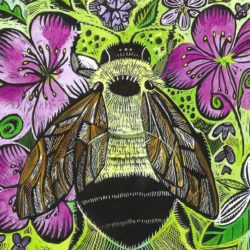When I was working on The Chiru of High Tibet, I began to think that there may be a need in us, one that we are only partly aware of, to keep our entire world intact. That wholeness is so important to us that four trekkers would risk their lives and health to save a species they might not see again. They had no plan to use their wool, no plan to put them in zoos. They just wanted to keep them in their place in the world.
More evidence: in the New York Times is a story of an effort to rescue sea turtle eggs so that they will not hatch in an area where the only food is oil-soaked seaweed.
Here’s part of the story:
Eggs will be allowed to incubate at Gulf beaches until day 51, 52 or 53 of incubation. Collecting the eggs at a late point in the incubation cycle, which lasts on average 60 days, means that transporting them is less likely to harm them.
The eggs will be excavated by hand by a designated sea turtle permit holder or permitted contractor, put into Styrofoam boxes and flown to Florida’s Atlantic Coast. There, they will be held in a “secure facility” at an off-beach location for the remainder of incubation.
As the hatchlings emerge, they will be collected each night and released on Atlantic Coast beaches, with the exact locations still to be determined, and allowed to make their way to the ocean.
The agencies chose Florida’s eastern coast in part because some of the Gulf hatchlings will end up being transported to the Atlantic Ocean anyway by the Gulf Stream, so they do not expect a one-time move to upset the genetic identities of the sea turtle populations. And given the uncertainty about how much oil will remain in the Gulf of Mexico, a release anywhere in the Gulf might put the hatchlings in harm’s way, they said.
The agencies said they have sufficient resources to carry out the plan. “However, the implementation of this plan requires a significant coordinated effort by all agencies and partners over an approximately four month period that must be sustained to accomplish the goals,” they said.
Nests from southwestern Florida beaches will not be moved. Based on the projected path of the oil spill and the movement of hatchlings from nests in southwestern Florida, the crude is not likely to result in the loss of all hatchlings this year, the agencies said. And the loggerhead turtles that hatch on southwestern Florida beaches are part of a larger subpopulation that also nests on Florida’s Atlantic Coast, they said.
The relocation won’t be done in future years or in other areas, the plan says.
Click here (pdf) to read the sea turtle plan.
Click here (pdf) to read frequently asked questions about the plan.
Copyright 2010 E&E Publishing. All Rights Reserved.
For more news on energy and the environment, visit www.greenwire.com.
Greenwire is published by Environment & Energy Publishing.
Read the whole story here.
Good luck turtles! Good luck rescuers!


